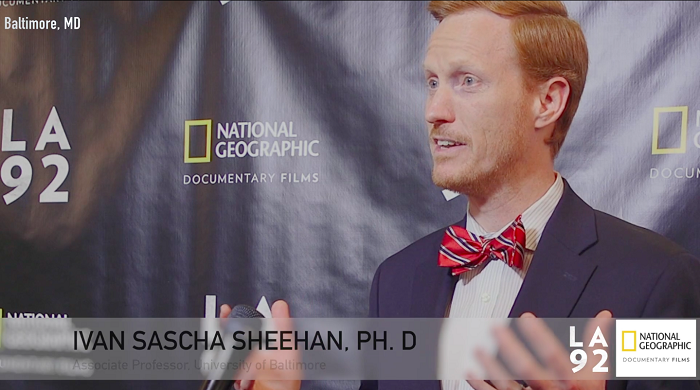
Prof.Ivan Sascha Sheehan
The 40th anniversary of Iran’s hostage crisis reminds us of the terrorist nature of the ruling regime in Iran. In 1979 a number of thugs seized the American embassy in Tehran and took 55 embassy employees and diplomats hostage for 444 days. Hostage-taking and warmongering as well as exporting terrorism have always been the fundamental strategy and diplomacy of this regime.
In an article published in Town Hall, Prof. Ivan Sascha Sheehan, director of the graduate programs in Negotiation and Conflict Management and Global Affairs and Human Security in the School of Public and International Affairs at the University of Baltimore, discussed the Iranian regime’s four-decade history of terrorism, saying: “For four decades, Western powers have regrettably but repeatedly failed to address the looming Iran threat or the belligerent regime’s underlying ideology,”
Prof. Sheehan: Only Way to Confront #Iran Regime’s Hostage Taking and #Terrorism Is Supporting Regime Changehttps://t.co/3aZ1akruQj#MEK #FreeIran @ProfSheehan @USAdarFarsi pic.twitter.com/4QDsdA7Ngq
— MEK Iran (Mujahedin-e Khalq) (@MEK_Iran) November 5, 2019
Dr. Sheehan then refers to the regime’s ongoing hostage-taking and writes: “At present, at least 17 dual nationals are held captive by Iranian authorities, often on the flimsiest of pretenses.”
Referring to the execution of 30,000 Mujahedin-e Khalq (PMOI/MEK) members and supporters in 1988, the article reads: “Mass arrests are a reminder of the Islamic Republic’s past crimes against humanity, particularly the massacre of 30,000 political prisoners in the summer of 1988. That incident stemmed from a fatwa by Ayatollah Khomeini which declared all opponents of the theocratic system to be at war with God himself, and thus subject to summary execution.”
The writer points to the regime’s animosity toward its main opposition, the MEK and writes: “The main target of that clerical edict was the highly capable resistance organization known as the People’s Mojahedin Organization of Iran (PMOI/MEK) and this group made up the overwhelming majority of the massacre’s victims.”
End the Impunity for Those Who Carried Out #Iran #1988Massacre
https://t.co/A8VLtwEGqI#WeSupportMEK #MEK #FreeIran @USAdarFarsi— MEK Iran (Mujahedin-e Khalq) (@MEK_Iran) October 10, 2019
Dr. Sheehan, then discusses the MEK’s leading role in an ongoing struggle for freedom and democracy in Iran, saying: “The movement endured in spite of the fierce persecution and even thrived in the ensuing decades. Last year, it was credited with leading the countrywide anti-regime protests and giving voice to the people’s progressive aspirations. But Khomeini’s fatwa remains in force, and political prisoners have been executed for actual or perceived support of the MEK.”
Pointing to the disastrous policy of appeasement toward the religious fascist regime ruling Iran, Dr. Sheehan writes: “These tactics were used, for instance, in 2016 around the time that the Iran nuclear deal was implemented. Four Americans were released in January of that year, but only in exchange for the U.S. settling an old debt to the previous Iranian government, as well as releasing or dropping charges against 21 Iranian nationals” he continued, “this only served to reinforce the impression that hostage-taking is a potentially lucrative endeavor. It is, therefore, no surprise that all four of the American hostages were promptly replaced by others.”
Finally, Prof. Sheehan concludes: “The only way this phenomenon’s recurrence can be prevented over the long term is if Tehran’s behavior – or the regime itself – changes completely,” “Domestic unrest demonstrates that there is no need for Western powers to actively pursue regime change. But they most definitely should promote an alternative vision for Iran’s future,”
